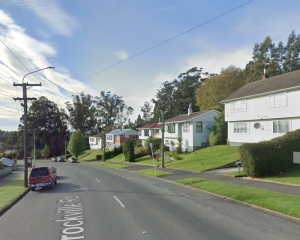
The application to establish a Big Barrel franchise off-licence store at 535 Andersons Bay Rd was withdrawn last month, after objections from Public Health South and other agencies, along with 10 public objections containing 70 signatures.
Public Health South alcohol and other drugs health promotion adviser Toni Paterson said, after the application was received in April, she made a letter drop to local residents to ensure they knew about it.
The response, which included the agency's objections and private objections, including two with multiple signatures, had contributed to the withdrawal of the application.
"I think it is cause for celebration that the community stepped up, had their say and were successful,'' Ms Paterson said.
It was also important to acknowledge the responsiveness of the franchise owners, Palwinder and Avtar Singh, of Padda Enterprises Ltd, who had listened to community concerns.
"It is a gratifying outcome, and hopefully this will help other communities to also be aware that their opinion counts,'' Ms Paterson said.
South Dunedin resident Nola Walker was among those who responded to the Public Health South mail drop, not only writing a letter objecting to the Big Barrel off-licence application, but also visiting neighbours to gather 26 signatures.
"The response from people I called on was mostly very good - they were keen to add their signatures to the objection,'' she said.
In her letter of objection, Ms Walker said there were more than enough liquor outlets in the area, including supermarkets, three bottle stores, a bar and a hotel.
She cited the possibility of harm, including road accidents, increased traffic density, domestic violence spurred by greater alcohol use and influencing children by normalising alcohol consumption.
"I'm very pleased that the applicant listened to the objections,'' she said.
The agency's objections and those of medical officer of health Dr Keith Reid centred on the fact that the proposed premises was in an area where there were three bottle shops and three supermarkets within 1km, as well as being in a high-deprivation area, likely to be suffering alcohol-related harm.
There were no concerns about the operators.
Dr Reid expressed concern about the issue of alcohol-related harm in the community, particularly as most alcohol was drunk in private homes. This could lead to emotional and physical abuse, financial problems and mental health issues, he said.
"I am pleased that the community did respond in the way they did, and that they took the opportunity to express their views,'' Dr Reid said.
"It was a good outcome all round and should be encouraging to others.''
A letter withdrawing the application said Palwinder and Avtar Singh were responsible licensees and operators who had "hearkened to community wishes'' and withdrawn applications in the past.
Although consent delays and other issues had hindered the application, the level of opposition meant "they would have come to the conclusion that at this time, this part of Dunedin does not want any more bottle stores'', the letter said.
Attempts by The Star to contact the applicants earlier this week were unsuccessful.
Alcohol-related harm
• The Dunedin Hospital emergency department has had 970 alcohol-related presentations so far this year.
• On average weekly, 29 people present at ED because of their own alcohol consumption, and four because of someone else’s.
• About one-quarter (23%) of the Otago and Southland population are ‘‘hazardous drinkers’’. (NZ Health Survey 2016-17).
• Harmful amounts of alcohol drunk in people’s homes can cause emotional and physical abuse, hardship and mental-health issues.
BRENDA.HARWOOD @thestar.co.nz











